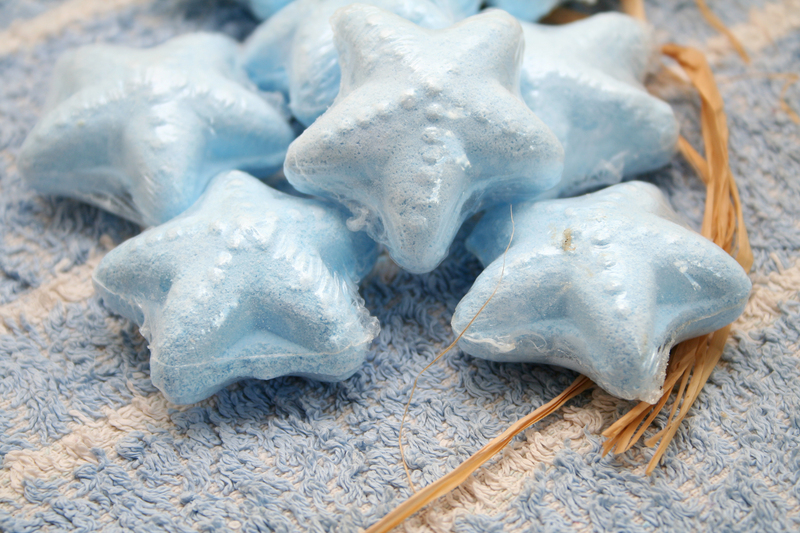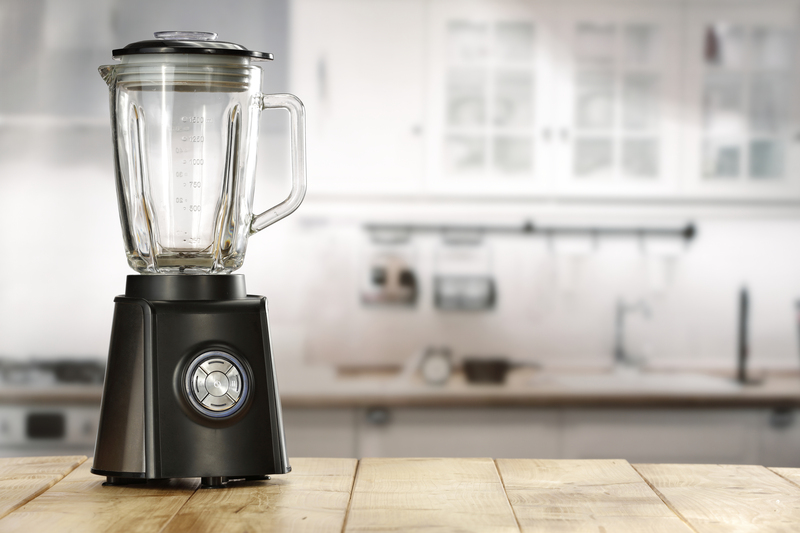Say Goodbye to Unpleasant Pet Smells in Your House
Posted on 19/09/2025
Say Goodbye to Unpleasant Pet Smells in Your House
If you share your home with pets, you're familiar with the love and joy they bring. However, even the most devoted pet lovers know that living with animals can mean living with persistent odors. From wet dog smell to litter box odors and accidents on the carpet, pet-related scents can invade every corner of your living space, sometimes making it hard to relax or welcome guests confidently.
So, how can you banish unwanted pet odors and achieve a fresh-smelling house once and for all? In this comprehensive guide, we'll reveal proven strategies and pet odor eliminators to help you reclaim your home's freshness--without compromising your pet's comfort.

Why Do Pet Smells Linger in the House?
Pet odors are notorious for lingering. The sources can range from fur and skin oils to litter boxes, dander, and occasional accidents. These odors are often made worse by:
- Porous materials: Carpets, upholstery, and even painted walls can absorb odors and hold them for months.
- Poor ventilation: If your home isn't well-aired, pet scents can concentrate and become stronger.
- Incomplete cleaning: Sometimes, cleaning up after a pet accident isn't enough if deep residues are left behind.
- Pet habits: Regular lounging in the same spots or marking can intensify scents.
The good news? With consistent habits, targeted cleaning methods, and the right products, you can eliminate pet odors at their source--not just cover them up.
Step-by-Step Guide to Removing Pet Smells from Your Home
1. Start with Pet Hygiene
The foundation of a fresh-smelling home is a clean pet. Here's how to make sure your furry companions aren't contributing to household smells:
- Regular bathing: Use pet-appropriate shampoos (never human shampoo) to keep coats clean and odor-free.
- Brushing: Brushing removes loose fur, dander, and dirt--major smell sources.
- Dental care: Bad breath & oral bacteria can permeate your pet's fur and surroundings. Use vet-approved dental chews or brush their teeth regularly.
- Clean paws: Wipe your pet's paws after outdoor walks to prevent dirt and bacteria from coming indoors.
2. Clean Bedding and Pet Areas Frequently
Your pet's favorite resting spots can become hotspots for odor buildup. To say goodbye to pet smells in your house, do this regularly:
- Wash pet beds, blankets, and toys every 1-2 weeks using hot water and pet-safe detergent.
- Vacuum and wash the areas underneath and around pet beds and play areas.
- Use washable covers on sofas or chairs where your pets lounge--these can be laundered frequently.
3. Master the Litter Box and Pet Toilet Management
Cats and small pets need a meticulously clean litter box to prevent unpleasant animal odors in your house:
- Scoop daily. Remove waste at least once a day to prevent lasting odors.
- Change litter regularly (once a week or more often if needed).
- Wash the box with mild, unscented soap every few weeks.
- Choose high-quality, odor-absorbing litters or natural alternatives like baking soda (check that these are safe for your pet).
- For dogs: Immediately clean up urine and feces from your yard or training pads to prevent lingering smells.
4. Deep Clean Floors and Carpets
Soft surfaces can trap odors deep within fibers. To neutralize pet scents in your house:
- Vacuum often: Aim for at least twice a week, or daily in high-traffic areas.
- Use a vacuum with a HEPA filter: These capture dander, hair, and even microscopic odor particles.
- Deep-clean carpets and rugs: Rent or buy a carpet cleaner, or hire professionals. Make sure to use enzymatic cleaners specifically designed for pet stains and smells, which break down organic material rather than just masking the odor.
- Mop hard floors: Use pet-safe solutions. Vinegar diluted in water can neutralize odors naturally, but always dry floors thoroughly.
5. Tackle Upholstery and Curtains
Textiles like sofas, chairs, and drapes are major culprits for pet-smell buildup:
- Machine-wash what you can, including pillow covers and throws.
- Steam clean or use upholstery cleaners for larger items, following manufacturer's instructions.
- Sprinkle baking soda on fabrics: Let it sit for 15-30 minutes, then vacuum it up to absorb lingering smells.
6. Purify Your Home's Air
Eliminating pet odors involves more than scrubbing surfaces. Airborne odors and dander need to be addressed as well:
- Open windows regularly to ventilate rooms and let in fresh air.
- Use an air purifier with a HEPA and activated carbon filter--these trap hair, dander, and odor molecules.
- Try natural air neutralizers like bowls of white vinegar, baking soda, or activated charcoal placed in problem areas.
- Invest in indoor plants (such as spider plants, snake plants, and peace lilies), which can help cleanse the air (but check for pet toxicity first).
7. Target the "Hidden" Problem Areas
Sometimes, the cause of ongoing pet odors is overlooked. Inspect and clean:
- Baseboards and behind furniture: Hair and dander accumulate in out-of-sight spots.
- Vents and air ducts: These can circulate odors throughout the home. Replace or clean filters regularly.
- Cracks and crevices in floors or walls: Use a crevice tool or compressed air to get rid of hidden debris.
The Best Products for Eliminating Pet Odors
When it comes to eradicating pet smells in your home, using the right products makes a world of difference. Here are some of the most effective solutions on the market (always check for safety before use around your animals):
- Enzyme-based cleaners: Specifically target and break down organic waste (urine, feces, vomit) instead of simply covering up the smell. Popular brands include Nature's Miracle, Rocco & Roxie, and Angry Orange.
- Odor-neutralizing sprays: Look for sprays that use plant-based or non-toxic ingredients, which are safe for both pets and furniture.
- Baking soda: An inexpensive, natural deodorizer that absorbs and neutralizes odors--perfect for carpets, upholstery, and the litter box.
- Activated charcoal: Traps odors at a molecular level; place charcoal bags in smelly areas for ongoing freshness.
- HEPA air purifiers: Essential for households with allergies or multiple pets.
- Pet-safe essential oil blends: While most essential oils aren't safe for pets, some companies offer pet-friendly options for diffusing (check labels carefully and consult your vet).
Home Remedies to Remove Pet Smells
If you prefer a DIY or natural approach to getting rid of pet odors in your house, give these home remedies a try:
- Vinegar solution: Mix equal parts white vinegar and water in a spray bottle. Spray on hard surfaces, then wipe dry. Effective for neutralizing pet urine smells.
- Baking soda carpet refresh: Sprinkle baking soda on dry carpet, brush it in lightly, leave overnight, then vacuum thoroughly. Baking soda naturally absorbs unwanted scents.
- Lemon water spray: Combine water and fresh lemon juice in a spray bottle to use as a light fabric refresher with an uplifting aroma.
- Hydrogen peroxide + baking soda (for stains): Dab hydrogen peroxide onto stains, sprinkle with baking soda, let fizz, then blot dry and vacuum.
Note: Always test any homemade solution on a small, inconspicuous area before applying everywhere. Some materials may react or discolor.
Habits That Prevent Pet Odors in the First Place
Prevention is the most effective way to keep your house smelling fresh in the long term. Adopt these daily and weekly habits:
- Establish a cleaning schedule: Regularly clean litter boxes, beds, pet bowls, and play areas before they become sources of odor.
- Encourage grooming routines: Brushing pets outdoors can minimize dander and hair buildup indoors.
- Feed a high-quality diet: A healthy pet produces less waste and generally has better-smelling breath and coat.
- Act fast after accidents: Immediate cleanup prevents deep urine or fecal penetration and discourages repeat accidents in the same spot.
- Protect soft furnishings: Use throws, washable slipcovers, and pet-specific blankets to create a barrier between pets and delicate furniture.
Is it Safe to Use Scented Candles and Air Fresheners for Pet Odors?
Many people turn to air fresheners and scented candles to cover up persistent pet odors. However, these often just mask the smell--and some contain chemicals or essential oils that can harm pets, causing respiratory issues or allergic reactions.
- If you use candles or diffusers, opt for unscented, soy-based, or beeswax candles, and avoid those with essential oils that are toxic to cats or dogs (like tea tree, eucalyptus, or citrus).
- Natural air fresheners (like bowls of white vinegar or baking soda placed discreetly in a room) are much healthier alternatives.
When in doubt, consult your veterinarian about the safety of any product you use to combat pet odors.
When to Seek Veterinary Help for Unusual Pet Smells
While most pet odors are caused by normal animal behaviors, persistent or severe smells can indicate a health problem. Watch for:
- Strong "fishy" odors around your pet's rear: This can indicate impacted anal glands in dogs and cats, requiring a vet visit.
- Constantly bad breath: Not just a cleaning issue--could signal dental disease, diabetes, or kidney issues.
- Foul-smelling urine or feces: May mean a urinary tract infection, parasites, or dietary issues.
- Any wound, discharge, or skin lesion that smells bad: Could be infected and needs immediate care.
Ruling out health problems ensures your efforts to remove pet odors are truly effective and keeps your beloved animal feeling their best.

Final Tips: Create a House That's Fresh and Pet-Friendly
- Establish pet-free zones: Keep bedrooms or certain rooms off-limits if possible, minimizing scent buildup where it matters most.
- Upgrade to easy-care furnishings and floors: Consider leather, washable covers, or tile/laminate floors for areas where pets roam.
- Welcome guests confidently: With a consistent approach, your house can stay both fresh and welcoming--even for non-pet owners.
In summary: Saying goodbye to unpleasant animal smells in your house doesn't mean you need to say goodbye to your pets. It all comes down to diligent cleaning, choosing the right products, and healthy routines for both you and your furry companions.
Frequently Asked Questions - How to Get Rid of Pet Odors in Your Home
- How often should I deep clean to control pet smells? - Aim for a thorough deep cleaning once a month, with daily and weekly routines for maintenance
- What is the fastest way to remove pet urine smell? - Blot up moisture fast, then treat with an enzymatic cleaner according to product instructions. Avoid ammonia-based products, which can worsen smells.
- Which household products should I avoid around pets? - Avoid bleach, phenol-based cleaners, and human air fresheners/essential oils unless labeled pet safe.
- Can I use vinegar to clean up after pets? - Yes! White vinegar diluted with water is safe for most surfaces and neutralizes odors naturally.
Embrace these expert tips and discover how simple it can be to eliminate unwanted pet smells in your house for good, creating a healthy, fresh, and loving home environment for everyone--including your furry best friends!
```Latest Posts
Eco-friendly solutions for pristine uPVC window frames
Achieve a Showroom Finish: Car Cleaning Like a Pro
Step-by-Step to a Mold-Free Bathroom Space
Say Goodbye to Unpleasant Pet Smells in Your House
Indoor Air Quality: A Key Player in Health for Homes and Businesses



